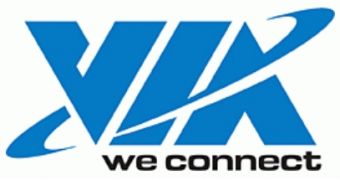Taiwanese manufacturer VIA teamed up with the graphics specialist Nvidia in a joint effort of capping Intel's upcoming Atom processor. The strategic pact could give birth to a whole new series of hardware parts, such as processors and integrated chipsets to deliver increased performance when paired.
While Intel competes with VIA on the low-energy processor market, the chip manufacturer is leading a tight battle against Nvidia's chipsets, although its integrated graphics cannot even match the graphics specialist's offerings.
According to some reports emerging from the motherboard manufacturers, the new alliance will offer the two companiesthe chance to tear down Intel's Atom and Centrino Atom products, that are expected to dominate the notebook and handheld consumer electronics markets.
The Taiwanese semiconductor designer is trying to revive its low-energy C7-M mobile processor, and transform it into a real competitor for the Atom processor. VIA has a long tradition in developing ultra-mobile, low-performance computing platform, and last year, the company started promoting its own Netbook reference design, called the Nanobook.
Surprisingly, the Nanobook design had a great success among system integrators and notebook vendors. Multiple companies released their own products based around VIA's reference design, such as Packard Bell, Maxdata, SungJut and Everex.
On top of that, HP's recently introduced 2133 Mini-Note ultra-mobile PC is also based on VIA's C7-M architecture, and it is one of the fiercest competitors on the UMPC market.
This will be a tough battle for VIA, given the fact that its flagship offering barely reaches 1.2 GHz, while Intel's miniature beasts can reach core clock speeds of 1.8 GHz.
However, the Taiwanese manufacturer will confront the CPU giant on a different playground. If Intel is used to competing on the high-performance market, VIA has been working with low-power processors since it was born, so it should have quite some aces up its sleeve.
More than that, the upcoming Isaiah chip will be able to process 64-bit instructions in an out-of-order manner, which should bring a plus of efficiency as compared to Intel's in-order Atom processors.

 14 DAY TRIAL //
14 DAY TRIAL //